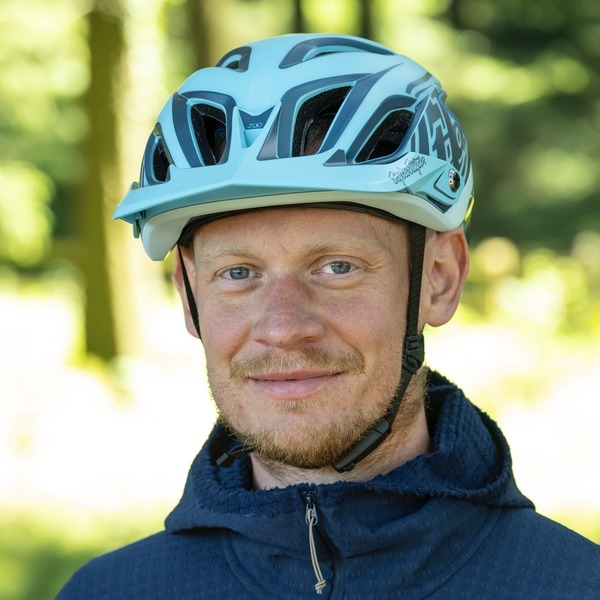The Spark RC has to be one of the best-known race bikes around, not just because of its longevity on the circuit and its big-name riders, including the legendary Nino Schurter, but more recently because of its unique design.
Having purchased Bold, Scott has utilised a modified version of its internal shock suspension layout, giving it a seamless look.
In a further departure for a cross-country race bike, Scott has given the new Spark 120mm of travel at both ends – 20mm more than one would usually expect.
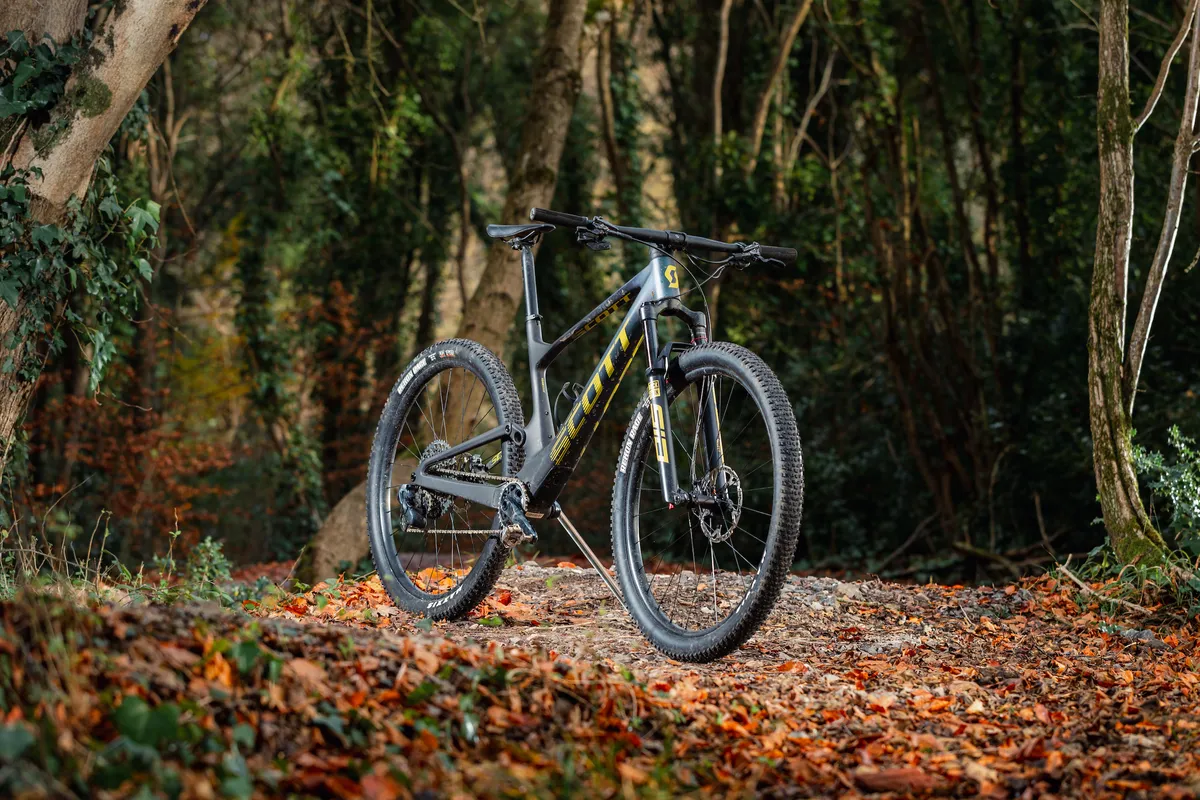
How we tested
This bike was tested as part of a three-bike group test.
We wanted to see just how capable these bikes really are when placed between the legs of someone who isn’t a World Cup racer.
During testing, we rallied them through berms and over jumps, slithered down slippery chutes and scared ourselves (to greater and lesser extents!) over matted roots, during a particularly damp early winter.
To keep heart rates up, we’ve also given them every watt our legs can muster, both on long, draggy climbs and short, sharp technical ascents.
Trail centre laps have given us consistent conditions in inclement weather, while forest tracks have really helped sort our podium’s ultimate order. Having raced locally, we’ve also put some times down around courses we’ve competed on previously.
To hit the top step of our test, the bikes not only have to efficiently dole out power on climbs, but also not cost us time on the descents.
Value is an ever-present assessment in a bike review, so we’ve checked every part to make sure they pass muster, and we’ve stripped the essential parts of the bike down to make sure that when you’re giving your bike that final bit of prep on Friday night ready for Saturday’s race, you won’t be tearing your hair out.
Also on test
Scott Spark RC Team Issue AXS frame and suspension
120mm of travel is provided by a vertically mounted shock that’s plugged in to the bottom bracket shell area and extends up into the seat tube, where a neat internal linkage drives it.
In order to access the shock, an easily detachable door sits in the belly of the bike, the removal of which exposes the air valve, rebound dial and Scott’s remote lockout TwinLoc cable system.
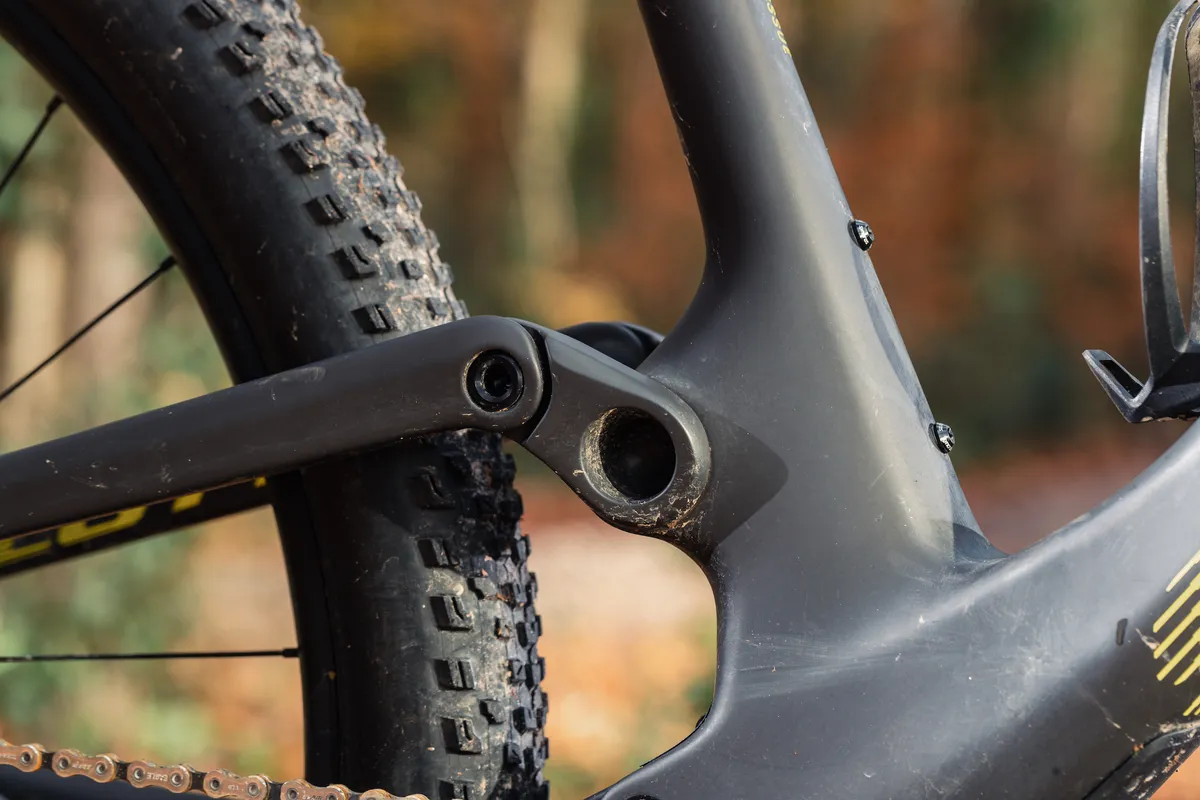
The suspension is a linkage-actuated single pivot, with flexible stays adding to Scott’s control of the suspension feel. The link that drives the shock is simply hidden in the seat tube.
With no shock complicating the inside of the frame’s front triangle, a pair of bottle cages are easy to locate. Brake hoses are run neatly though a shrouded stem and into the headset for even cleaner lines.
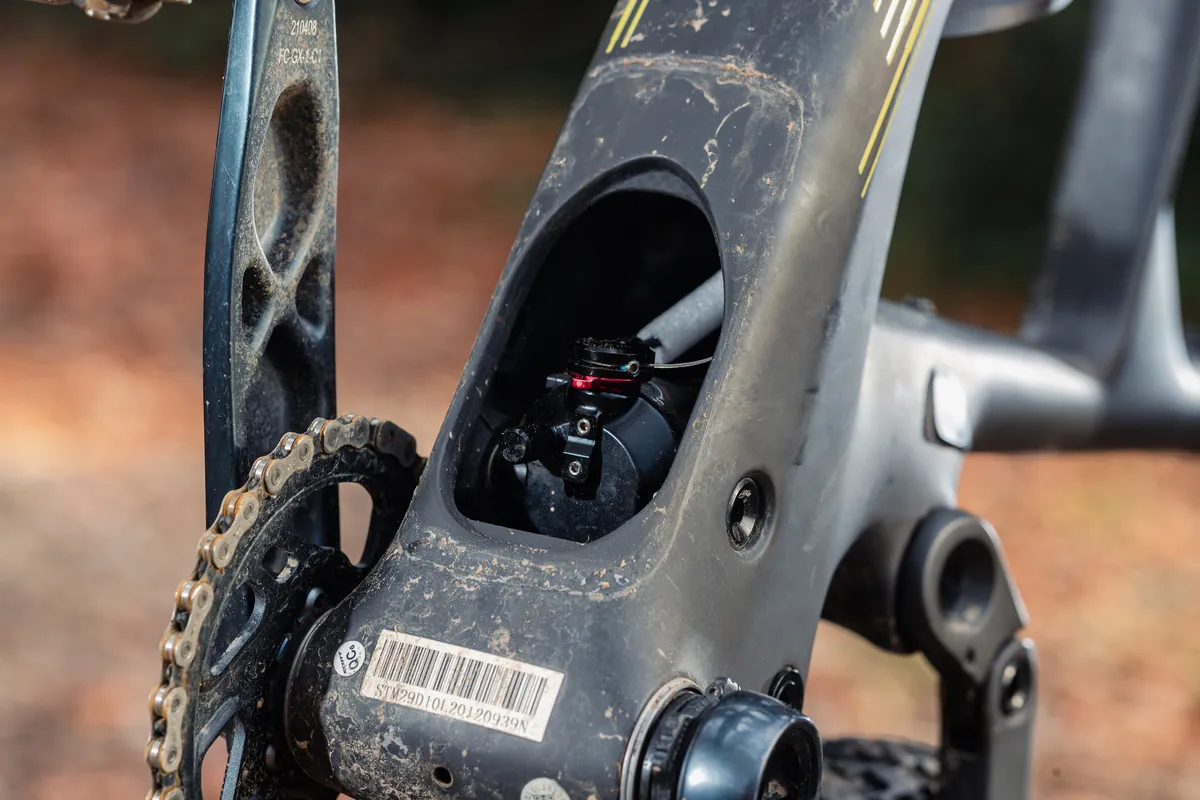
Scott Spark RC Team Issue AXS geometry
The Spark RC's geometry is bang up to date. A 471mm reach is as generous as the 67.1-degree head angle is slack. This is in the bike’s slack setting, as Scott has fitted the Spark with a 0.6-degree angle set, for those wanting a steeper front end.
| Size | S | M | L | XL |
|---|---|---|---|---|
| Head angle (degrees) | 67.1 | 67.1 | 67.1 | 67.1 |
| Head tube length (mm) | 90 | 90 | 105 | 115 |
| Top tube length (mm) | 562 | 590 | 614 | 642 |
| BB height (mm) | 328 | 328 | 328 | 328 |
| Wheelbase (mm) | 1,129 | 1,159 | 1,195 | 1,231 |
| Seat tube length (mm) | 415 | 440 | 490 | 540 |
| Seat angle (degrees) | 74.9 | 74.9 | 74.9 | 74.9 |
| Chainstay length (mm) | 437 | 437 | 437 | 437 |
| Reach (mm) | 411 | 441 | 471 | 501 |
| Stack (mm) | 605.5 | 602.5 | 616.5 | 625 |
Scott Spark RC Team Issue AXS specifications
The name of the bike gives away the highlight of the spec list, with SRAM’s GX AXS drivetrain impressing all who test it. The wireless electronic shifting is light in feel and incredibly dependable, so long as you charge the battery. On an XC bike, it simply makes life easier when your head is down and your heart pounding.
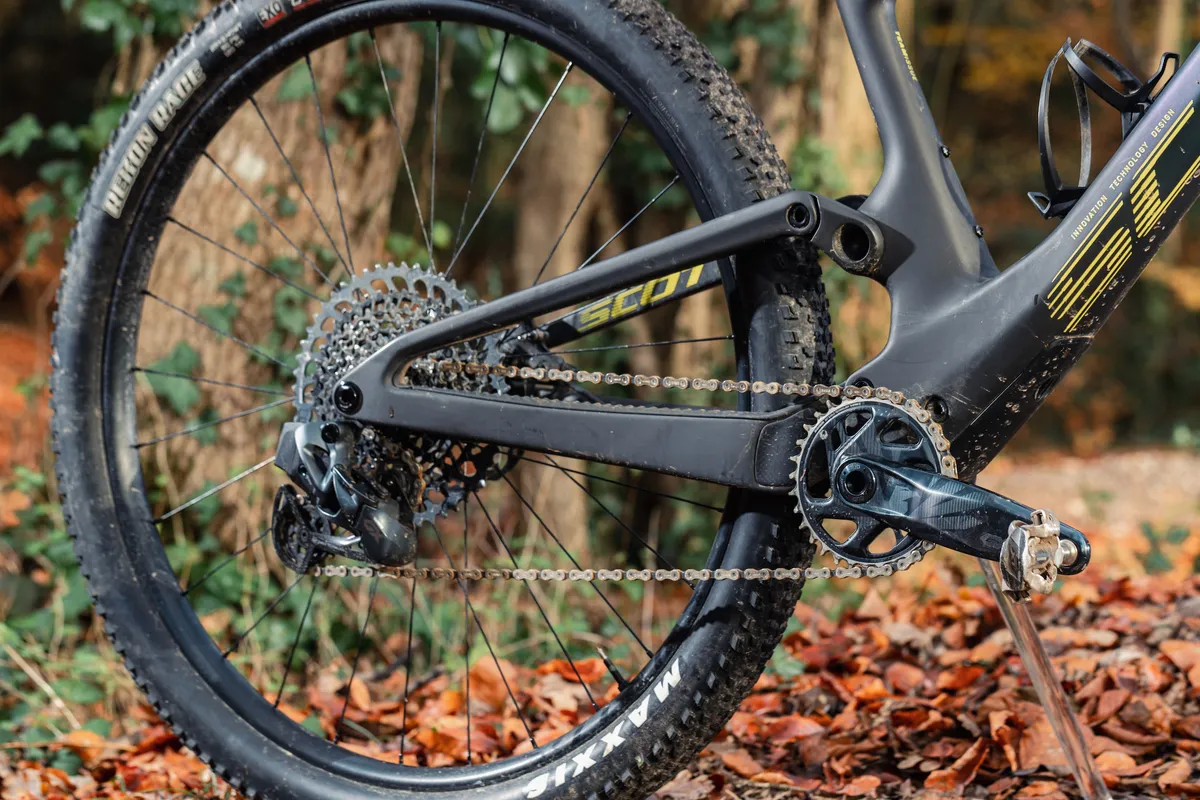
Outside of this, the RockShox suspension is solid. Up front, there’s the new SID fork with 35mm uppers (Scott doesn’t spec the lighter SID SL here), fitted out in the cheaper Select build. Inside the frame is a custom Nude shock, built by RockShox. It has a trunnion construction, the smaller dimensions helping the shock fit inside the frame.
Both fork and shock are connected to Scott’s TwinLoc on-bar lockout levers, which allow toggling between open, traction and firm modes. In traction mode, travel is effectively limited to 80mm, and the bike sits higher in its travel, aiding its climbing geometry.
In-house brand Syncros’ kit features heavily in the cockpit and wheels, with Maxxis’ broad 2.4in Rekon Race tyres blowing up large on the generously wide Silverton 2.0-30 wheels.
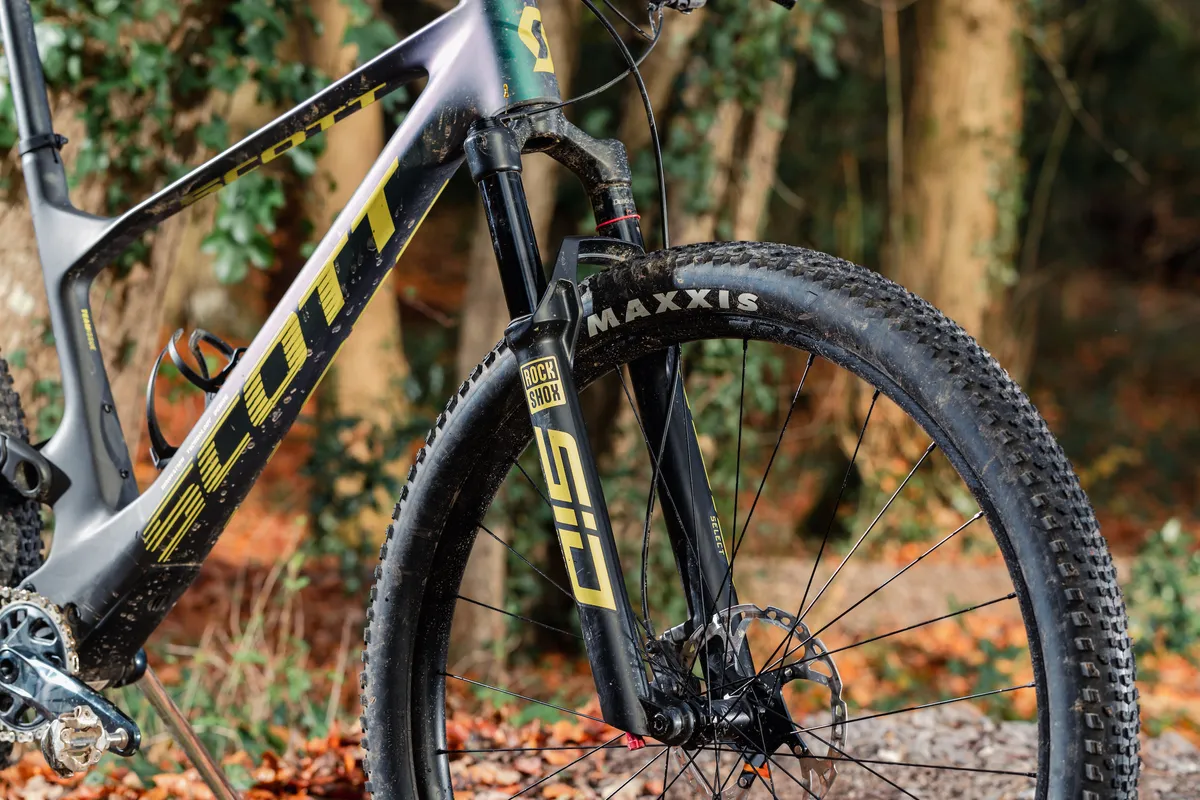
At 11.93 kilos, it’s not the lightest, though on paper should be more than capable when the trails descend.
Scott Spark RC Team Issue AXS ride impressions
I tested the bike on a wide range of trails appropriate for cross-country and trail bikes. These included fast trail-centre blasts and winding woodland trails, as well as hammering it around an XC course I'd raced recently.
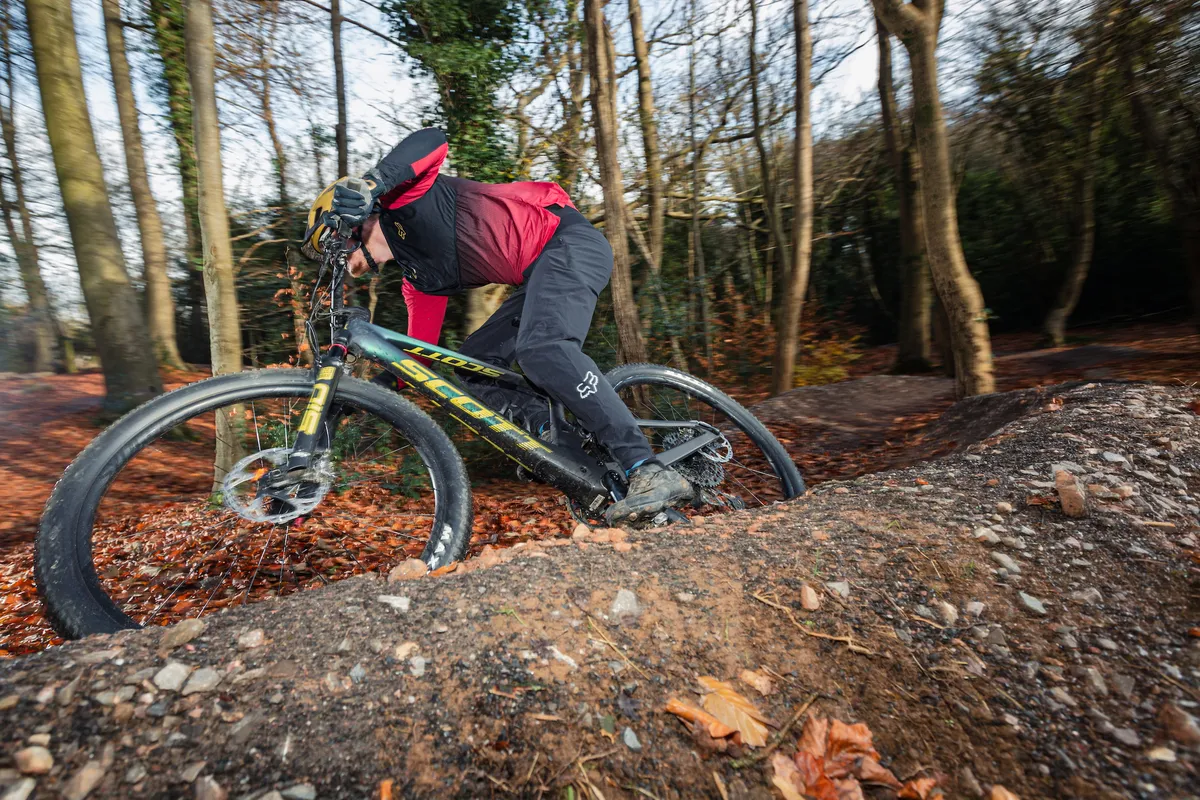
Setting up the Spark was incredibly easy, even though the shock isn't visible. There's a small sag dial on the linkage, which is visible from the bike. Of course, a shock open to the elements is a touch easier, but don't let the hidden nature of this one put you off.
Likewise, getting access to adjust the shock is easy enough, with a door that is easily removed. Full maintenance is going to be a touch more tricky than on other bikes, thanks to the internal linkage, and the cable routing that goes through the headset.
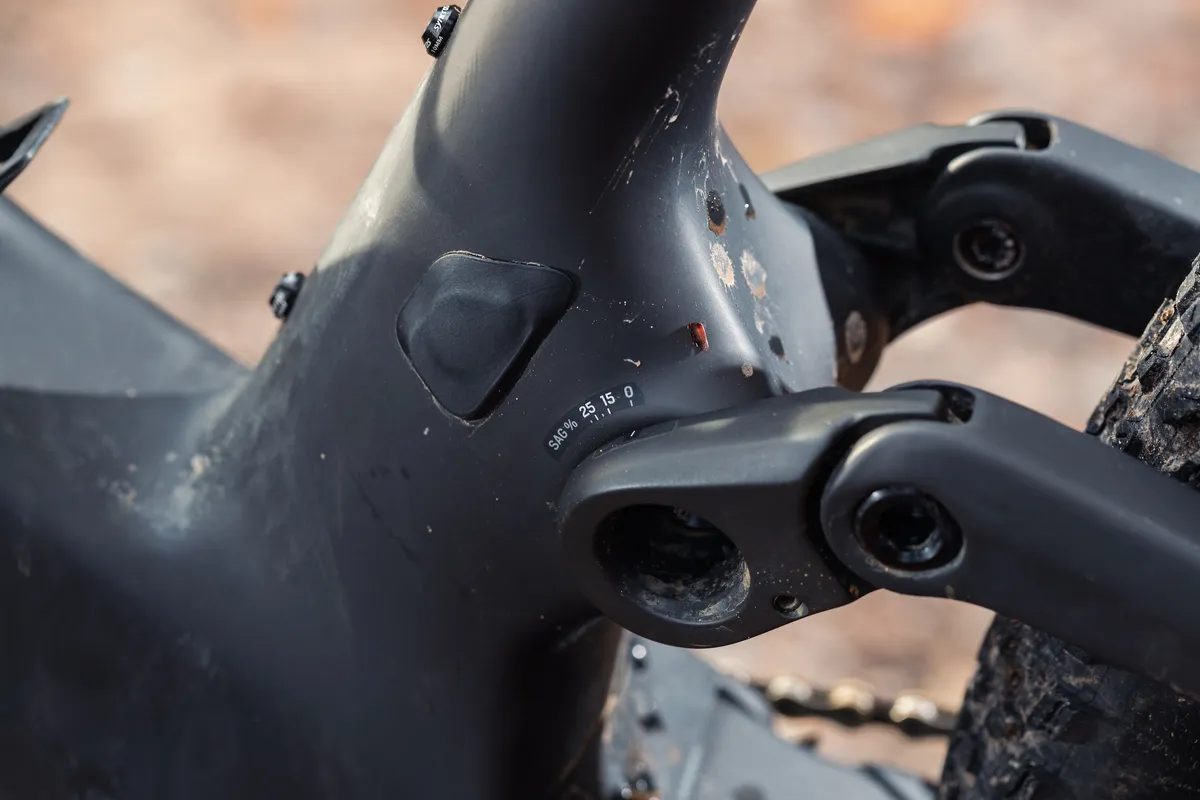
Scott Spark RC Team Issue AXS climbing performance
The remote lockout, called TwinLoc, is key to unlocking the Spark’s uphill performance, and I used the lockout a lot while testing the bike. Its lever is easy to access from the grips, and gives quick and easy control of the fork and shock's damper settings from open to closed, via a middle 'traction' setting.
When open, the suspension is too free to move to feel sharp under power – something I look for on an XC bike.
In its open mode, it wasn't particularly inviting to get out of the saddle and sprint on, until I’d clicked into the traction or firm mode. Even then, it doesn't have quite the same reactions as some of the more taught XC bikes around – perhaps due to a touch of frame flex.

On the flip-side, when climbs get really loose and technical, the Spark is in a class of its own. It seems to generate grip where other bikes flounder, meaning kicks in power aren’t wasted as wheelspin. As such, on these rooty, steep and technical test-loop climbs, the Spark RC was consistently one of the fastest around.
I did have to be more careful with my pedal strokes, though. While at 328mm statically the BB height is average for an XC bike, the extra travel on the Scott left me clipping pedals on technical climbs a little more than on some other bikes, when the bike was left in its open mode.
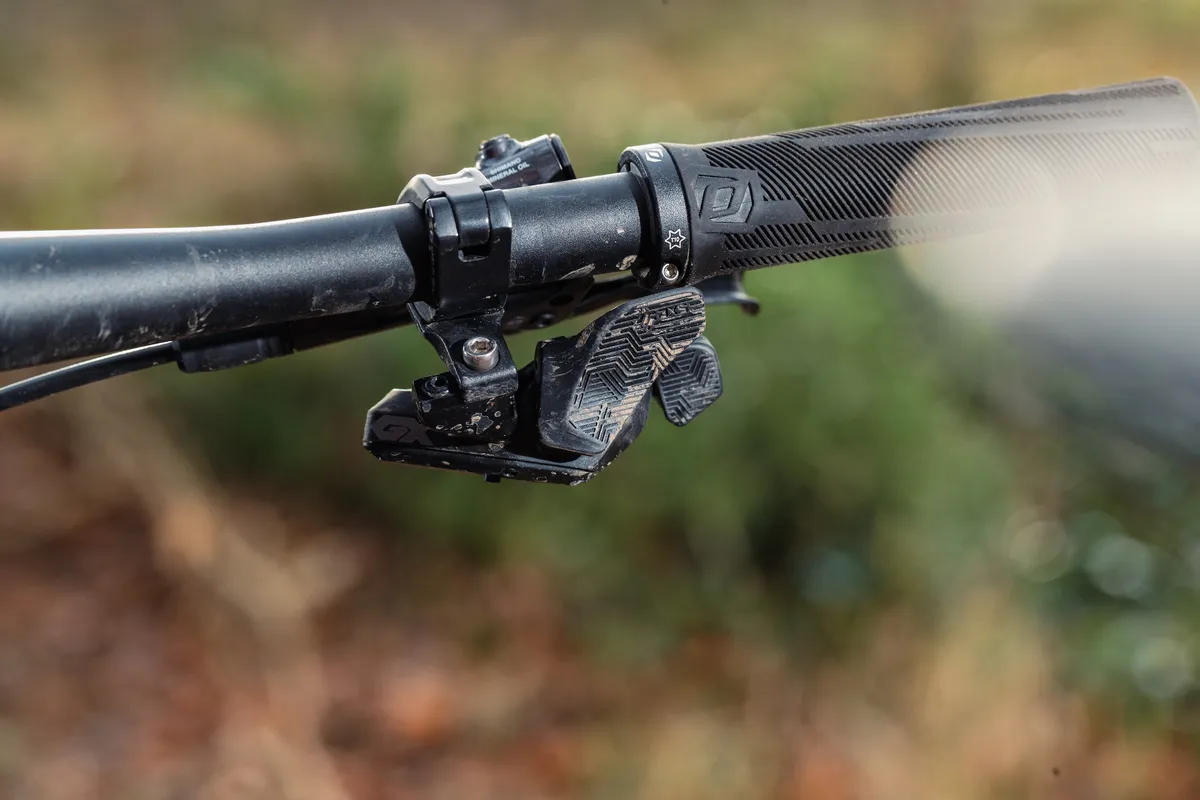
The Rekon Race is a fast-rolling tyre on the climbs. It's clear, from its skinny tread, that rolling resistance is going to be low. However, I was surprised at how doggedly it gripped on less favourable surfaces. No doubt, the wide rims, allowing slightly lower tyre pressures and giving the tyre a really nice shape, helps.
Scott Spark RC Team Issue AXS descending performance
It shouldn’t be a surprise that adding 20mm of travel at either end, as well as a stout fork and wide rims and tyres, leads to a bike that’s dominant on the descents.
Rough and rooty singletracks are despatched with composure and control not befitting an XC race bike. Yes, a dropper and wider bars would aid things further, but the Spark barely needs them.
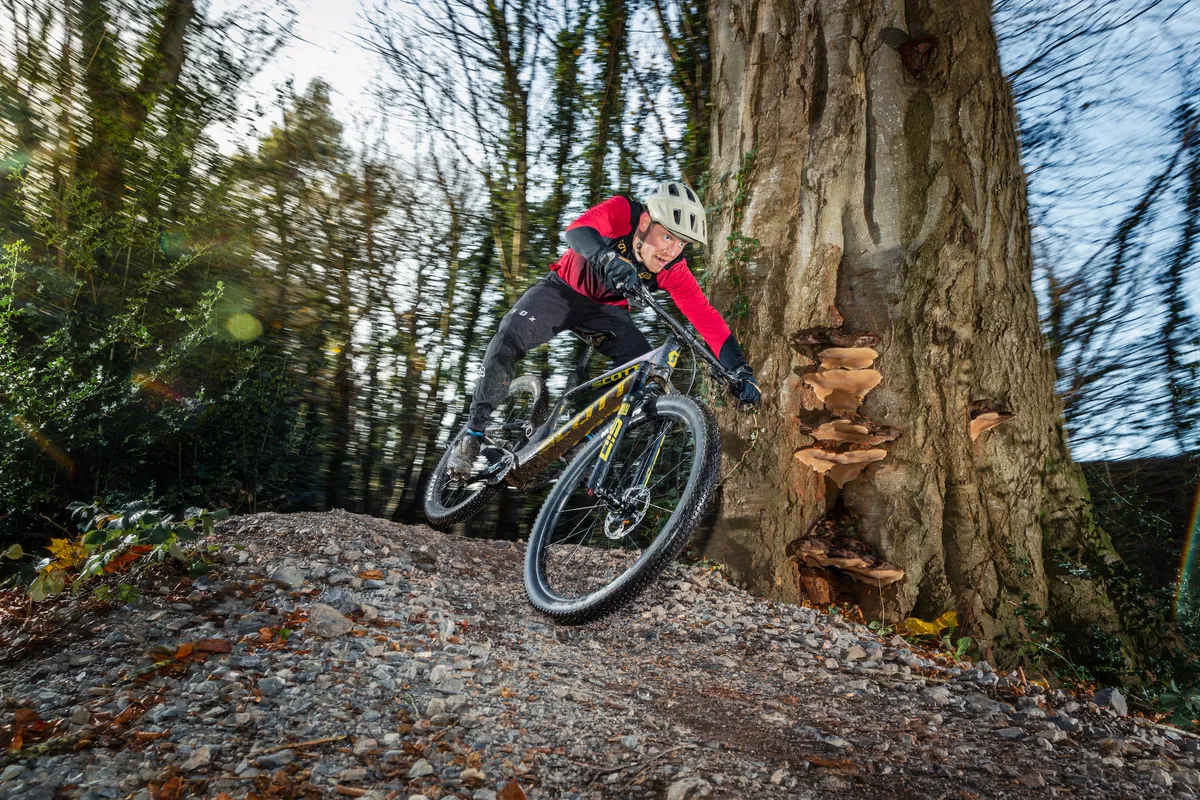
The rear suspension smooths the way, supporting the skinny tread of the Rekon Race in its quest for grip. With broad rims, I ran my Rekon Races at lower pressures than I usually would on an XC bike, further improving grip and control.
I spent time on the Spark RC, both with more trail-like 24 per cent sag and pert-feeling 20 per cent sag, and I reckon each has its merits. Racers will settle on less, mirroring the general trend in XC to run slightly higher pressures, but on rougher courses I’d go softer and rely more on the excellent TwinLoc remote to control the back end’s behaviour uphill.
The geometry means the Spark is equally at home hustling through trees as it is giving you the confidence to get off the brakes and aim for the next corner as you tip the bike into a chute.
It’s not all rosy, though. I'm not convinced the chassis is laterally as stiff as it could be – noticeable on tight uphill corners where a squeeze of the throttle is needed, or when really pushing it through a bermed corner.
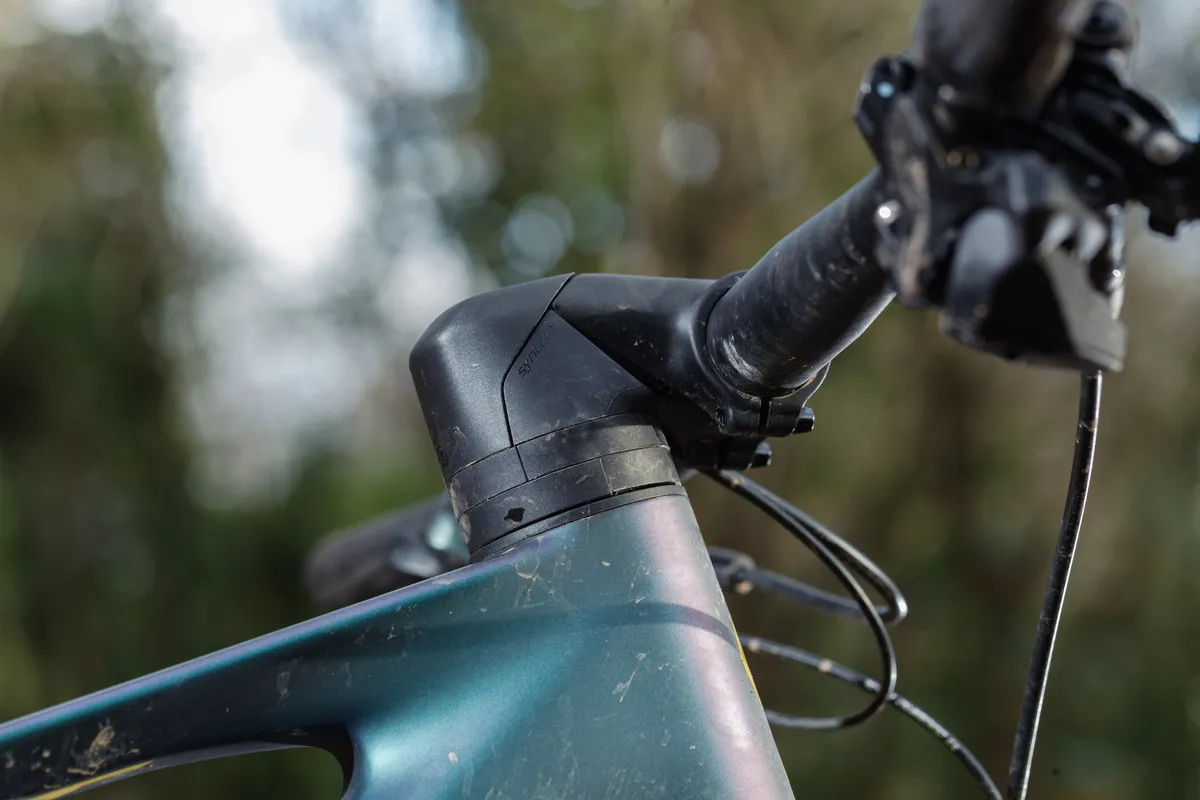
Likewise, a touch more mid-stroke support would go down well on more pumpy trails – it gets to the lower reaches of its mid before other more reactive XC bikes would, and certainly has less zing than the most aggressive XC bikes in its class.
Scott Spark RC Team Issue AXS bottom line
Of the XC bikes I've tested recently, the Spark is the easiest to transfer over to if you’re used to longer-travel rigs – it has much more trail- and enduro-feeling suspension, so shouldn’t feel too odd.
With the addition of a dropper post, and perhaps a second set of tyres, it’d make an excellent downcountry mountain bike, though you’d have to check on dropper length, as the 490mm seat tube is long, and you’d need a vertical dropper remote thanks to the TwinLoc’s position on the bars.
The grip it generates uphill is unreal and it’s buttery smooth on the way down. With the suspension’s compression circuit so easy to control from the bars, you’re only a thumb push from the suspension doing exactly what it should be doing.
Yes, fitting a dropper will be tricky, but with broad rims and supple tyres, and the sturdy SID fork, you won't be embarrassed on the XC course.
Product
| Brand | scott |
| Price | 4699.00 GBP |
| Weight | 11.9300, KILOGRAM (Large) - |
Features
| Fork | SID Select RL3 |
| br_stem | Syncros XC 1.5 |
| br_chain | SRAM GX Eagle |
| br_frame | Scott Spark RC |
| Tyres | Maxxis Rekon Race, 29x2.4",120TPI Foldable Bead Tubeless Ready, EXO |
| br_brakes | Shimano XT |
| br_cranks | SRAM GX Eagle |
| br_saddle | Syncros Belcarra Regular 1.5 Titanium rails |
| br_wheels | Syncros Silverton 2.0-30 |
| br_headset | Syncros - Acros Angle adjust & Cable Routing HS System |
| br_shifter | SRAM GX Eagle AXS |
| br_cassette | SRAM XG-1275, 10-52t |
| br_seatpost | Syncros Duncan 1.5 |
| br_gripsTape | Scott |
| br_handlebar | Syncros Fraser 1.5 XC 740mm |
| br_rearShock | RockShox NUDE 5 RL3 |
| br_bottomBracket | SRAM DUB |
| br_availableSizes | S, M, L*, XL |
| br_rearDerailleur | SRAM GX Eagle AXS |
